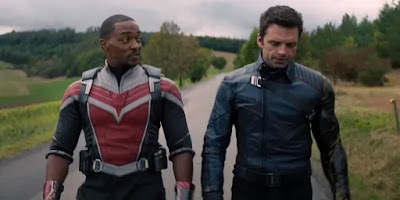
While I was big into The Phantom Menace upon its release (reminder: I was 12) and I’ve rewatched Attack of the Clones here and there over the years, I’m pretty sure I only saw Revenge of the Sith when it first came out. As such, I remembered the big, pivotal moments, but there was a lot here that I’d either forgotten or just plain wasn’t paying good attention to when I saw it the first time.
Set against the backdrop of the Clone Wars, Anakin Skywalker is seduced by the Dark Side. He’s impatient to become a Jedi master but knows he’ll be excommunicated if his secret love affair is revealed. A tempter whispers in the ear of the volatile young man, and he begins to let his fears and his anger rule him.
In retrospect, it’s clear the the Jedi’s rigid rules and emotional repression messes Anakin up at least as much the guy actively nudging him toward the dark side. The problem isn’t that Anakin is afraid or in love or resentful – it’s that the Jedi order continually lectures him to push those feelings down instead of engaging with them in a healthy way. The Jedi nix intimate attachments on the grounds that they’re dangerous, but if anything, Star Wars is all about showing how we need our loved ones standing beside us to win the day. Luke, Leia, and Han. Rey, Finn, and Poe. The Mandalorian and Grogu. Even the Rogue One crew, who goes into their mission having just met each other, but by the end, it’s clear how much they support and trust one another. Instead of teaching Anakin that his emotions are problems, which pushes him to keep them secret until he can’t control them, he might’ve been saved if he instead could’ve learned to lean into his relationships and express himself honestly.
But of course, then there would be no Star Wars, and what would we be doing here? The prequels squander a lot of promise, and I know I personally didn’t find my way back to Star Wars until The Force Awakens and beyond, but ultimately, we are here to learn the story of the boy/young man who becomes Darth Vader. So we need the descent, the darkness, the epic volcano fight, all of it, and there are places (like the aforementioned volcano fight) that are really well done. Unfortunately, the good parts, for me, are surrounded by a lot of over-the-top angst and dubious plot developments, which make the better moments harder to appreciate.
I’m not sure how, but in the years since 2003, I managed to completely forget General Grievous. No memory at all of a battle-scarred asthmatic droid that can split his arms apart to make more arms and wield a light saber with each one. How did I forget that, especially since a decent chunk of Obi-Wan’s plot focuses on him, and by this point, I was pretty much in it for the Obi-Wan? Not sure, but despite the CGI that definitely shows its age, I did enjoy that stuff.
As a final note, I realized I didn’t mention this in my Attack of the Clones review (admittedly, it was only relevant in the final scenes of that movie,) but Revenge of the Sith is one of a great many Star Wars movies to feature an able-bodied character playing a character with a disability. Even before he goes full Vader, Anakin starts the movie minus one hand – like father, like son, I guess. This is your obligatory reminder that, if Hollywood had been committed to authentically casting disabled characters all this time, actors with amputations would rule genre properties, along with a not-inconsiderable number of actors in wheelchairs and blind actors.
Warnings
Violence
(the most disturbing moments are implied rather than shown, but this is still a
film that earns its PG-13,) scary moments for kids, strong thematic elements,
and an able-bodied actor playing a character with a disability.

